Anecdotal evidence can be really powerful, but how valuable is it? On Instagram @AndreaHardyRD, I talk all about how important it is to understand what anecdotal evidence is and how it can be problematic.
Anecdotal evidence is a powerful form of persuasion… but it’s not science. (#scicommunity Thursdays)⠀
⠀
I’ve been persuaded by it – I’m sure we all have at times – because nothings better than a testimonial that we can relate to – that we see ourselves as being in that similar circumstance.⠀
⠀
????????????????????⠀
Not all anecdotal evidence is false, however, we need to consider it only accounts for ONE persons experience, and doesn’t take into account any other important factors that may have contributed to the results of something working or not.⠀
⠀
???? ???????????????????????????????? ???????????????????????????????????????? ???????? ???????????? ????????????????????????????.⠀
⠀
❕There are times when anecdotal evidence is benign.❕⠀
I have curly hair. I ask a friend with curly hair what her favourite shampoo is and giving it a try. Risk is low – I either end up with a bottle of shampoo I like, or I don’t.⠀
⠀
❗Unfortunately, there’s times where anecdotal evidence can be harmful.❗ ⠀
The bigger the claim, the larger the promise, the more hope is provided. With that, people are willing to take LARGER risks in favor of an improbable benefit.⠀
⠀
I talk in my TEDx talk about an oncology patient choosing juicing, rather than chemo, as a method to cure her cancer because of information she found online. ⠀
⠀
The risk of declining treatment far outweighs the benefit from a scientific perspective, however, this anecdotal evidence appealed SO strongly to emotion that a huge risk was taken.⠀
⠀
Science is SO important because it can actually determine whether a single factor, or intervention has the impact we have by way of sample size, control group, and assessment & correcting for confounding variables, to name a few.⠀
⠀
Science determines whether the results were of chance, or possibly related to something else entirely. ⠀
⠀
While anecdotal evidence can be helpful for the ‘little stuff’ on a one on one basis, when we start to share it on social media as experiential fact, it becomes misinformation.⠀
⠀
Next time you go to share anecdotal evidence, reflect upon WHY your sharing it, WHO the message is for, and IF it comes off as a ‘how to’. The golden rule if you’re not a medical expert? ⠀
⠀
Give SUPPORT not ADVICE when it comes to health. ✅

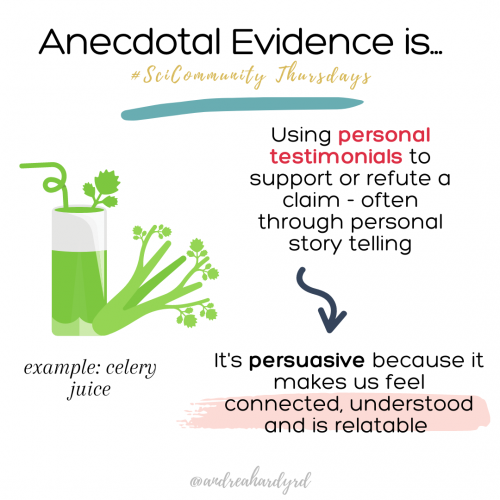
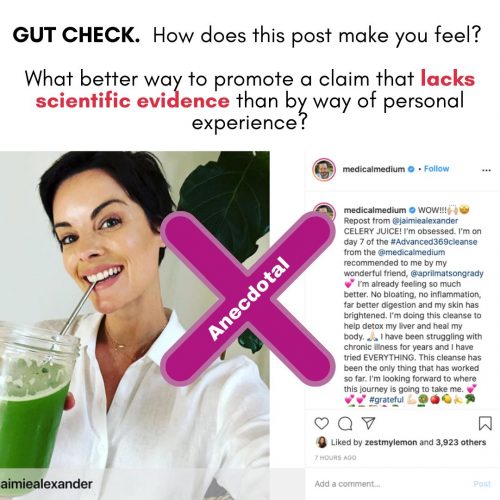
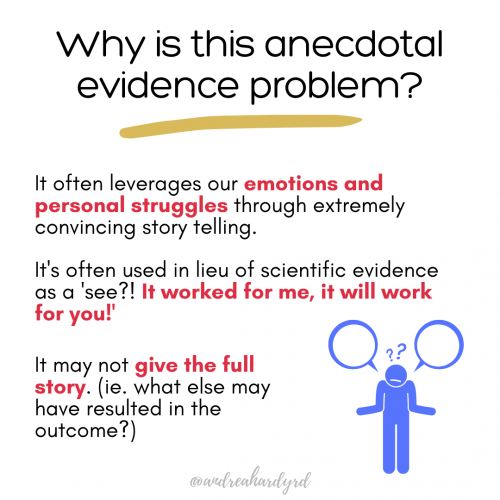
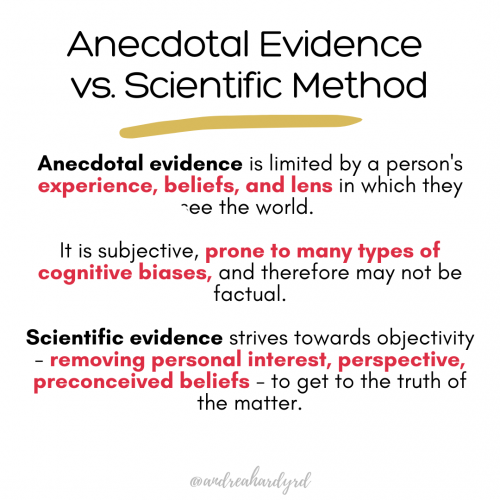
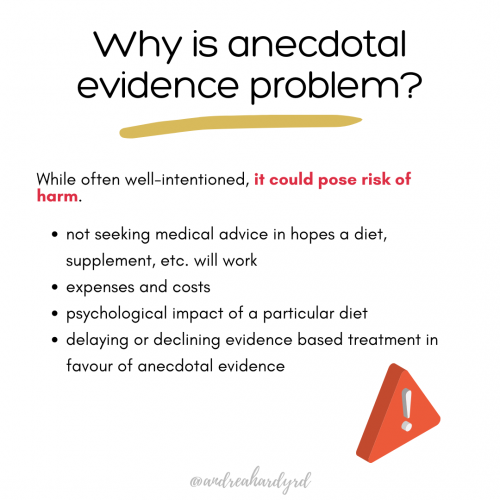
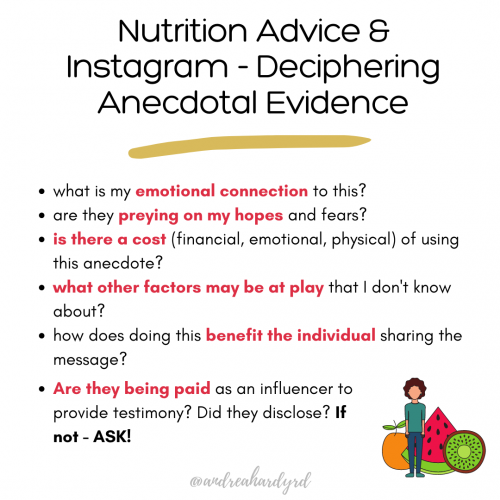
Recent Comments